A Sound Economic Investment – The Pre-Purchase Exam
March 23, 2024 Comments Off on A Sound Economic Investment – The Pre-Purchase Exam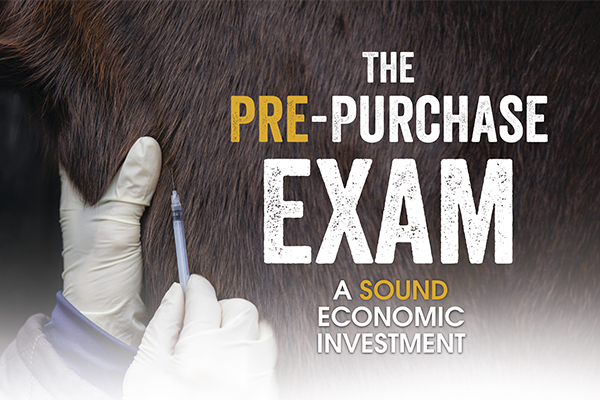
A horse seldom comes with a money-back guarantee. That is why it is so very important to complete your due diligence investigation before you make the purchase and take possession of a horse. And, while many equine professionals can help you evaluate the merits of a particular pedigree or performance achievements, only an experienced equine veterinarian can help you determine the physical condition and overall health of an animal.
Continue reading …Colic Surgery: What You Should Know
March 22, 2024 Comments Off on Colic Surgery: What You Should Know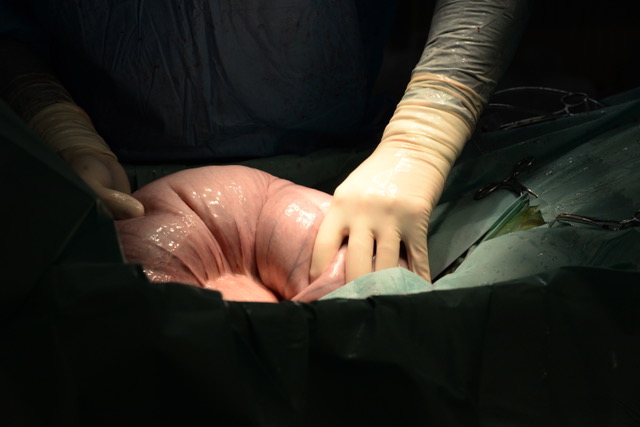
By Brian S. Burks, DVM, Diplomate, ABVP, Board Certified Equine Specialist Fox Run Equine Center Suddenly, you are faced with an enormous decision about your best horse. The choice is colic surgery or euthanasia. You only have a few minutes to decide, and the outcome is uncertain. Will he have a good quality of […]
Continue reading …Horse Portal Extends Free Offer to Youth
March 22, 2024 Comments Off on Horse Portal Extends Free Offer to Youth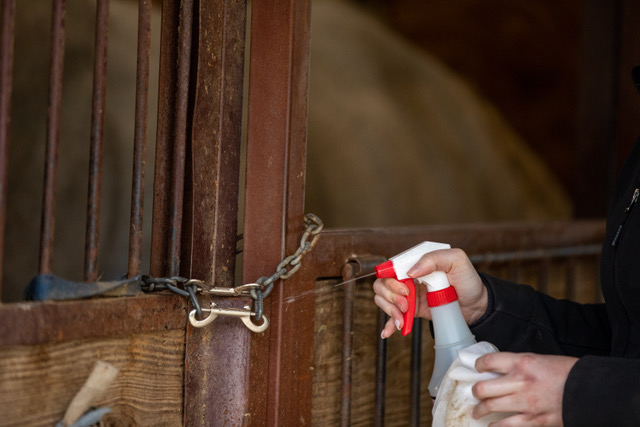
By Jackie Bellamy-Zions, Equine Guelph: Start Early with Sickness Prevention! Learning healthy habits early makes biosecurity second nature and that is why Equine Guelph is offering their Sickness Prevention in Horses short online course on TheHorsePortal.ca FREE to teenagers (14 – 17). The March 18 – 29 offering of this course will be open to the grass roots of […]
Continue reading …Pros And Cons Of Non-Steroidal Anti-inflammatory Drugs For Horses
March 19, 2024 Comments Off on Pros And Cons Of Non-Steroidal Anti-inflammatory Drugs For Horses
Humans and horses share some of the same ailments like painful arthritis, swelling and discomfort from injuries, sore muscles, etc. that can benefit from anti-inflammatory medication. Ste-roids can relieve pain and swelling, but have some adverse side effects, especially if given frequently. Non-steroidal anti-inflammatories (NSAIDs) are more commonly used. Humans often self-treat with Advil, ibuprofen, aspirin, etc. and horse owners frequently use Banamine, Phenylbutazone (Bute) and some of the newer equine NSAID products for their horses.
Continue reading …A New Approach To An Old Malady: The Latest In Orthobiologics
March 17, 2024 Comments Off on A New Approach To An Old Malady: The Latest In Orthobiologics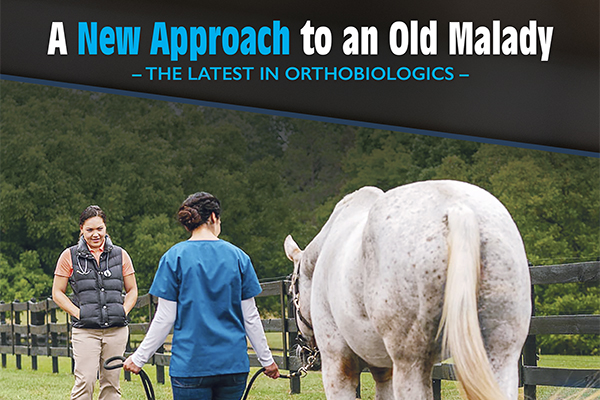
Researchers are looking at how to use a horse’s own body to battle osteoarthritis.
Continue reading …Spring Forward Horse Health With Vaccinations
March 14, 2024 Comments Off on Spring Forward Horse Health With Vaccinations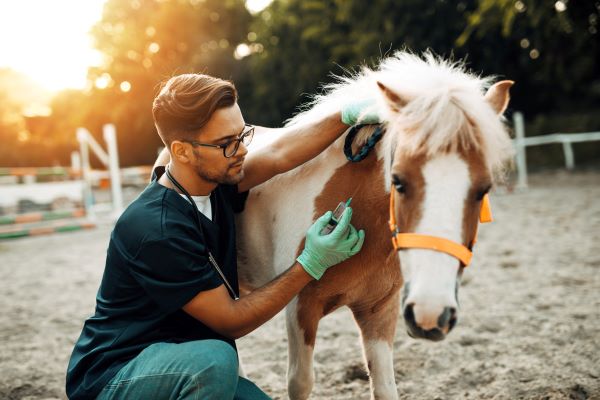
From Valley Vet Supply: By Tony Hawkins, DVM, Valley Vet Supply Consulting Veterinarian “Healthy as a horse” starts with spring vaccinations. As horses are exposed daily to the environment, wildlife and mosquitoes that transmit the five core equine diseases, it’s important to follow the American Association of Equine Practitioners (AAEP) core equine disease vaccination protocol. […]
Continue reading …
From Equine Science Update, posted by Mark Andrews: Can the growth and maturation of yearling Thoroughbreds be accelerated by artificially extending the day length? A Japanese study has been exploring this possibility. Hokkaido, the mostly northerly of Japan’s main islands, is the primary breeding ground for over 97% of Thoroughbreds in the country. Hokkaido experiences […]
Continue reading …Help Your Horse Shed Its Winter Coat
February 27, 2024 Comments Off on Help Your Horse Shed Its Winter Coat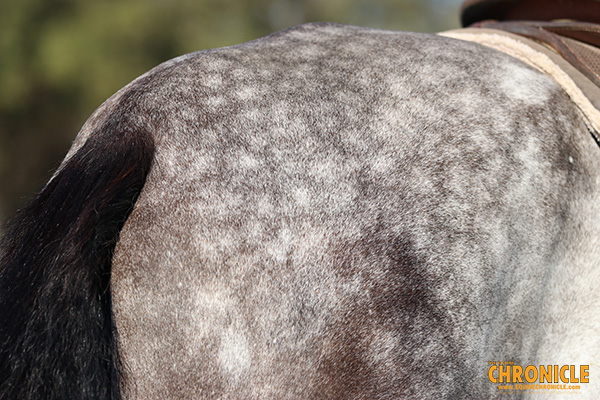
In order to help your horse shed its thick winter hair, it is first important to understand what makes its hair grow. Although hair growth generally coincides with colder temperatures, it is primarily the amount of daylight hours that affects a horse’s hair growth, or lack thereof.
Continue reading …Soy for Horses: Facts and Fallacies
February 22, 2024 Comments Off on Soy for Horses: Facts and Fallacies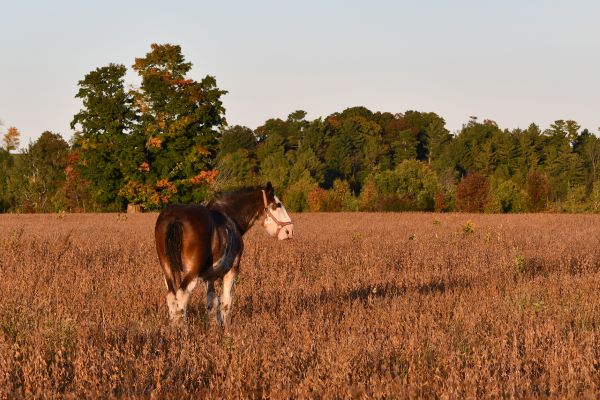
From Kentucky Equine Research: Soybeans and soybean byproducts are commonly used as ingredients in horse feeds. Whole soybeans are legume seeds primarily used as a source of protein and fat in horse feeds. Soy oil is a palatable and readily available source of fat in horse feeds and is sometimes top-dressed to increase fat and […]
Continue reading …New Collaboration Between Boehringer Ingelheim and Sleip Leverages AI-technology to Help Detect Lameness in Horses
February 20, 2024 Comments Off on New Collaboration Between Boehringer Ingelheim and Sleip Leverages AI-technology to Help Detect Lameness in Horses
From Boehringer Ingelheim: DULUTH, Ga. (FEBRUARY 19, 2024) — A new global commercial partnership between Boehringer Ingelheim and Sleip will expand access to AI to enhance detection, diagnosis and treatment of lameness in horses. This partnership delivers on the shared commitment of Boehringer and Sleip to deliver innovative solutions that help veterinary professionals continue to advance their profession and improve […]
Continue reading …







